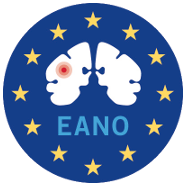-
Views
-
Cite
Cite
Andrea Griesinger, Andrew Donson, Jean Mulcahy Levy, Vladimir Amani, Diane Birks, Rajeev Vibhakar, Michael Handler, Nicholas Foreman, IM-08
INFLAMMATION DRIVER, NF-kB, IS ASSOCIATED WITH POOR OUTCOME GROUP A EPENDYMOMA AND REGULATES A KEY IMMUNE SUPPRESSIVE SIGNALING PATHWAY INVOLVED IN THE TUMOR MICROENVIRONMENT, Neuro-Oncology, Volume 17, Issue suppl_3, June 2015, Page iii16, https://doi.org/10.1093/neuonc/nov061.63Close - Share Icon Share
Extract
Inflammation has been identified as a hallmark of high-risk Group A ependymoma (EPN). An initial study from our lab showed Group A was distinguished from Group B by an inflammatory immune phenotype. Given that inflammation has been identified as a causative factor in a number of other tumor types we concluded that Group A may also be influenced by inflammation. Investigation of this hypothesis revealed that tumor cells were releasing an inflammation-associated protein called interleukin-6 (IL-6). This converted surrounding myeloid cells in the tumor to release inflammatory effector IL-8 via activation of a key tumor cell and immune cell functional regulator called STAT3. We sought to investigate the mechanism driving IL-6 production in Group A EPN. We analyzed our molecular dataset and identified genes that are dysregulated in Group A EPN compared to other EPN subtypes and additionally are also dysregulated compared to all other childhood brain tumor types. A large number of these genes are associated with NF-kB activity, also a regulator of inflammation, which is known to drive IL-6 production. We also found that one gene was significantly underexpressed in Group A EPN than all other tumor types, LDOC1, a known suppressor of NF-kB transcription. This provided rationale to explore NF-kB signaling and its role in driving inflammation in Group A EPN. Using our newly developed Group A EPN line, 811, we found loss of NF-kB, through genetic knockdown of RELA, a key NF-kB protein, decreased proliferation and induced apoptosis. Furthermore, loss of NF-kB resulted in decreased STAT3 signaling suggesting its role in driving the inflammatory signaling. We conclude that NF-kB to important in Group A EPN survival and is implicated in the immune suppressive phenotype observed in Group A. Effective design of Group A-targeted immunotherapy for children with EPN may require blockade of this potentially immunosuppressive pathway.






